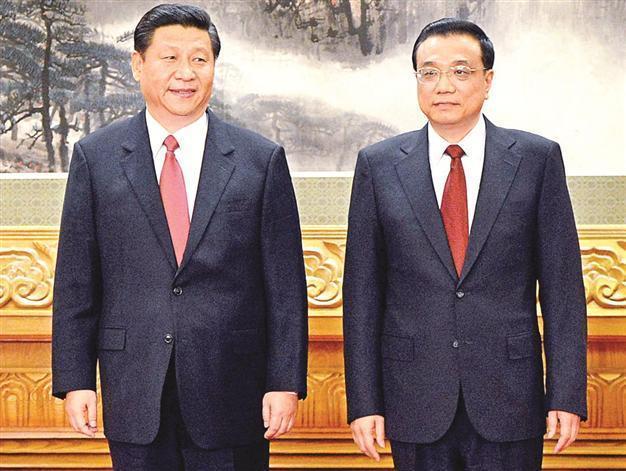China’s new leaders unveiled, Xi at helm
Sadi Kaymaz BEIJING / Doğan News Agency

Chinese Vice President Xi Jinping (L) and Li Keqiang, premier-in-waiting, meet the press at the Great Hall of the People in Beijing. Xi was appointed as China’s new leader at the helm of a revamped top power circle. AFP photo
China’s ruling Communist Party has completed its once-in-a-decade leadership transition by selecting the critical party organs in a capital under draconian and sometimes absurd security measures.Over the past week, more than 2,000 delegates convened in Beijing and selected the 205-member Central Committee. On paper, the Central Committee appeared to elect the top echelons of the nation’s power. But, in fact, China’s next generation of top leaders had already been decided by a kind of horse-trading between current leaders and ex-leaders such as former party boss Jiang Zemin and ex- premier Li Peng, who fiercely defended the use of force to quell the Tiananmen Square protests of 1989.
The intrigue and factional clash, which has been going on for months behind closed doors, finally ended yesterday morning when the new members of the Standing Committee walked out on stage in a single file line to meet the world. There were no surprises as Xi Jinping took the helm of China with the top party spot and the seven-man line-up was dominated by conservatives.
As the new leaders walked out on stage, Xi Jinping was on the fore spot in the line, which suggests that he got the top job from outgoing President Hu Jintao as party chief, marking the climax of the once-a-decade leadership succession. To many observers he remains something of a cipher, unpredictable figure. In March he will succeed Hu as president.
Who is Xi?
The torch bearer for the communist regime, 59-year-old Xi has risen through the party ranks over the past three decades and has been groomed as the highest ranking cadre among the party’s fifth generation of leaders.
However, there is not much known about him, apart from his enviable pedigree and the sketchy details found in his official résumé. He is the “princeling” son of Xi Zhongxun, who firmly advocated market reforms by supporting legendary open-minded reformer in 1980’s.
Although China watchers generally believe Xi is more likely to be a reform-minded leader than his conservative predecessor, they caution against hopes that he may become a political strongman like the late paramount leader Deng Xiaoping, able to push for bold political reform. Li Keqiang, the next premier to take the job in March, is likely to be the best educated since the founding of the People’s Republic of China, holding postgraduate degrees in law and economics from prestigious Peking University.
In his university years, Li studied the ideas of leading British judges and mixed with democracy advocates, leading some to hope his premiership will herald significant political change in the world’s last major communist-ruled nation. He was the first lawyer as a member of the party’s supreme Standing Committee, and would be the first lawyer to become premier. Most of China’s leaders have over the decades been engineers, trained in an education system heavily influenced by the Soviet Union.
Conservatives captured the remaining seats of the Standing Committee at the expense of younger and more reform-minded names. Wang Qishan, known as an economic reformer, was granted the job of top discipline chief against corruption inside the party. Liu Yunshan was another winner in the leadership race, knocking out reform-minded Li Yuanchao. He was the one pushing strict media and Internet censorship policies over the past decade.
















